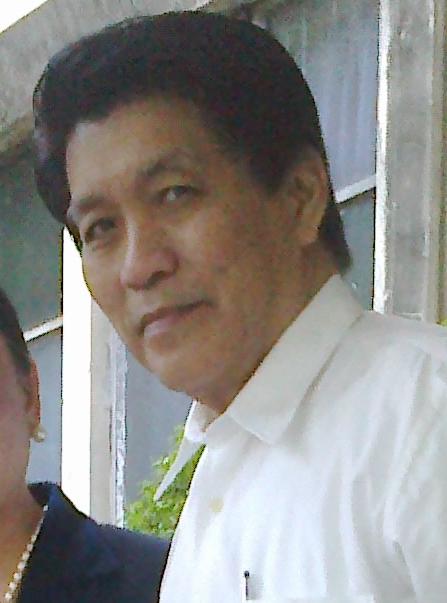SUMMARY
This is AI generated summarization, which may have errors. For context, always refer to the full article.
 After Rappler set aside this month for remembering our teachers, these memories came flooding back in torrents across time and space. They are stories my favorite teacher loved to tell.
After Rappler set aside this month for remembering our teachers, these memories came flooding back in torrents across time and space. They are stories my favorite teacher loved to tell.
In July 1901, three years after the Battle of Manila Bay in which Admiral Dewey decimated the Spanish armada and thereby launched the United States as a world power–and only four months after the capture of General Emilio Aguinaldo, thereby ending the Philippine war of independence–the US Army transport ship Thomas departed San Francisco Bay with a load of some 600 American schoolteachers bound for the Philippines.
The “Thomasites”–as they were to be known later–were sent to fulfill America’s “Manifest Destiny,” a foreign policy that President William McKinley said came as a message from God after several nights of prayers kneeling by his bed. The inspiration justified America’s annexation of the Philippines so that the US could mentor their Filipino brown brothers in the rudiments of democracy through education.
The Thomasites undertook the training of 25,000 English-speaking Filipino schoolteachers who formed the nucleus of the Philippine Bureau of Education. McKinley appointed William Howard Taft to head a commission which established the Department of Public Instruction to put up a public school system throughout the country. That is the system we have today.
My favorite teacher trained under the Thomasites to become a teacher himself–although he later earned a law degree and worked as a journalist for most of his life. Inflamed by the Thomasites’ missionary zeal, he never stopped teaching. He loved to tell me stories that taught life’s precious lessons, and to correct misconceptions about many things, trivial and sublime.
One of these was the notion that Franklin Delano Roosevelt originated the term First 100 Days, the political yardstick by which the fledgling days of American presidents are measured, and later Filipino presidents, too. The term was actually first applied to Napoleon Bonaparte’s Hundred Days–but not his first 100–as emperor of France.
Chinese lessons
The ancient Chinese have also been credited with many things—many times factually, at other times mythically.
Fact: The Chinese invented gunpowder, both for entertainment as fireworks, and for military purposes as weapons of mass destruction.
Fact: The Chinese said, “The journey of a thousand miles begins with one step.”
Myth: The Chinese said, “A picture is worth a thousand words.”
Fact: They actually said, “A picture is worth TEN thousand words.”
‘The Kiss’
One memorable picture that my teacher loved to paint in words is the one taken in the middle of Times Square in New York City to celebrate the end of the war in the Pacific on Aug. 15, l945, 68 years ago.
The historic photograph—since dubbed “The Kiss”—captured on black and white film a fleeting moment when the surrender of Japan rippled across the oceans in tsunamis of celebration, passionately depicted in a delirious, delicious embrace between a sailor and a nurse in the middle of the busiest square in the capital of the world.
That photograph was foreshadowed by another historic photograph, taken on Feb. 19 of that year, showing five American Marines and one Navy corpsman planting the Stars and Stripes on Mt. Suribachi, a 545-foot mound of volcanic rock on the island of Iwo Jima, the first Japanese territory captured by the Americans in their relentless drive toward Japan.
Iwo Jima had doubtful strategic value. The American forces decided to invade it after they found they had time on their hands—two months to be exact—after the Battle of Leyte Gulf had ended quickly. This was immortalized in another historic photograph of Gen. Douglas MacArthur wading ashore to fulfill his famous promise, “I shall return.” (MacArthur was accompanied by Gen. Carlos P. Romulo in wading ashore. For MacArthur, the water was waist-deep – for Romulo, it was neck-deep, almost drowning him.)
In an earlier, much simpler time and place, Roosevelt used radio to engage his fellow Americans in an earnest conversation about the things they cared about deeply.
Roosevelt, a former governor of New York state, had just been elected to his first term as president. It was 1933, and America was reeling in a debilitating economic depression. Thousands were out of work and families were starving.
The chat
Roosevelt was expected to find quick solutions. But he knew he had to lift the people’s spirit first because solutions would not come quickly.
Roosevelt found a simple way–he talked to his people about their problems over a radio program called “Fireside Chat.” Over radio, he kept his people informed of the slew of executive orders and legislation that would mark his First 100 Days–a massive effort to lift America out of the Great Depression by creating hundreds of thousands of jobs.
Oozing with sincerity, Roosevelt invited the people to tell their President about their problems. What came across was not so much that immediate solutions were forthcoming, but that there was a president who cared enough to listen.
A simple, sincere conversation with no promises—and no frills.
The White House telephone system went into hyper-drive. Millions of letters deluged the President. The White House floated in a veritable sea of letters–an alphabet-soup tsunami!
Many of the people who wrote said they did not expect the President to actually read their letters. But maybe the White House staff would—and could do something about their problems.
In any case, whether anything came out of it, they said, it was well worth the effort to hear the President. It was enough that he cared to listen, even if there was nothing much he could do all at once.
Simple letters from simple folks saying simple truths.
More than 15 million of those letters are preserved in the Roosevelt Library. Millions more are kept in government archives.

The tears
No frills–just simple conversations between a president and his people, using the simple technologies of their time, radio and postage stamps. Television was yet to be invented. Photo opportunities were yet to be concocted.
Who would have thought that sincerity and a genuine concern for people could be transmitted over the airwaves–or preserved in handwritten notes smudged with tears?
Technology is useless without sincerity. All the sophisticated tools of mass communications cannot create rapport—or connect with people–without a genuine concern.
Perhaps it is time to learn again the lost art of conversation—one on one, up close and personal. It just might work in the gilded age of media and technology.
The simple things usually do. The complicated things trip us.
My teacher, my mentor, my father, taught me on lazy Sunday mornings while having his favorite cup of coffee when he was still with us. That was how I learned about the Thomasites, who taught him how to teach well. – Rappler.com
Winston Marbella is the founder and CEO of a management consulting think tank. You can contact him at mibc2006@gmail.com.
Add a comment
How does this make you feel?
There are no comments yet. Add your comment to start the conversation.